Nurturing Trauma Superpowers
Support clients into post-traumatic growth

Live, online course
Oct 30-Dec 11
Powerful practices
avoid burnout & vicarious trauma

Practical tools
work with trauma

Practical tools
work with trauma
Powerful practices
avoid burnout & vicarious trauma
As coaches can we work trauma?
Only therapists can work with trauma right? Nope.
There’s so much hidden trauma that we are ALL working with trauma anyway. Why not learn to do so skillfully? This is not only ethical but makes your coaching much better. This is what I found after starting a trauma education charity in Ukraine – my regular coaching just improved.
Trauma can get in the way of any type of change work that doesn’t take it into account, and we do have to take great care in this area. It’s not to be taken lightly. But it’s nothing to be terrified of as a coach either.
While there is a time to send clients to a therapist, coaches can also help clients with areas directly related to their trauma. One of the best groups of people I’ve coached are those whose trauma is fairly well processed, but they haven’t quite got to the “gold” of post-traumatic growth. These clients can be supported to find their “ trauma superpowers” (skills that they grew through adversity) and to make the most of them. This is really satisfying work.
Trauma enhanced, not just informed
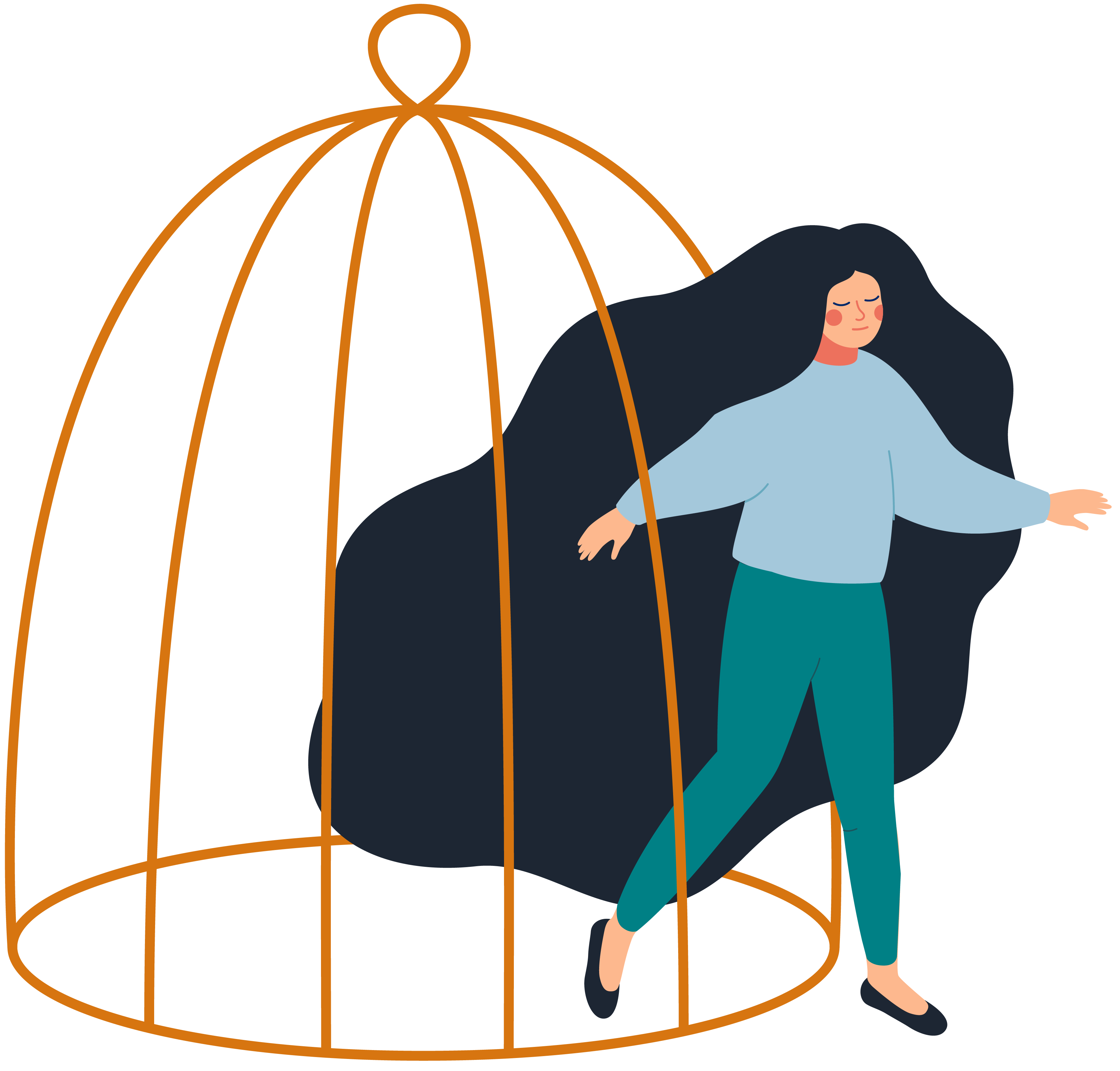
Trauma can really undermine a coach’s change efforts. When our clients remain stuck in old patterns, we can feel ineffective and get drained. It sucks as we want to help people right. A trauma-enhanced approach to coaching allows you to unlock a new level of effectiveness with clients, and get past that. It’s kinder too, and well, it’s the only thing that works.
Nurturing Trauma Superpowers offers a compassionate, holistic way to work with trauma as a coach or facilitator. Whatever your current modality, it will lead to greater connection, trust, and authenticity with clients. It will give you the confidence to work with trauma in a way that doesn’t drag up the past or put anyone at risk. Actually it will be fun.
You can help clients to not only overcome their trauma, but also to grow stronger and more resilient because of it. I’ve coached across the UK, the Middle East, Africa and Ukraine, and find that supporting clients to get to this place to be really meaningful. It’s deeply gratifying to watch hurt people become…well…kick ass people.
Would you like to avoid burnout too?
Working with trauma can also be really hard. I’ve suffered burnout and almost gone nuts doing so, but it CAN also be a fun, nourishing, positive journey. I can teach you how to actually make it an enjoyable growth experience. There’s a big difference.
You’ll need some powerful self-care practices to protect yourself from vicarious trauma and burnout when working with trauma as a coach. I learned these the hard way. There’s no need for you to make the same mistakes! It isn’t all doom and gloom though – I have had some of the most enjoyable coaching experiences of my life working with trauma. I know this sounds weird but it’s true, it’s been an honour.
On this course you’ll take a good hard look at yourself. It’s best for people with experience of coaching or facilitating already, as it’s primarily for professional skills rather than personal healing. You’ll need to be in a good state yourself and be robust.
So… do you want to work with trauma in a sustainable, balanced way that nurtures your clients’ growth? Do you want to find your own superpowers and support others to do the same? If so, Nurturing Trauma Superpowers may be for you.
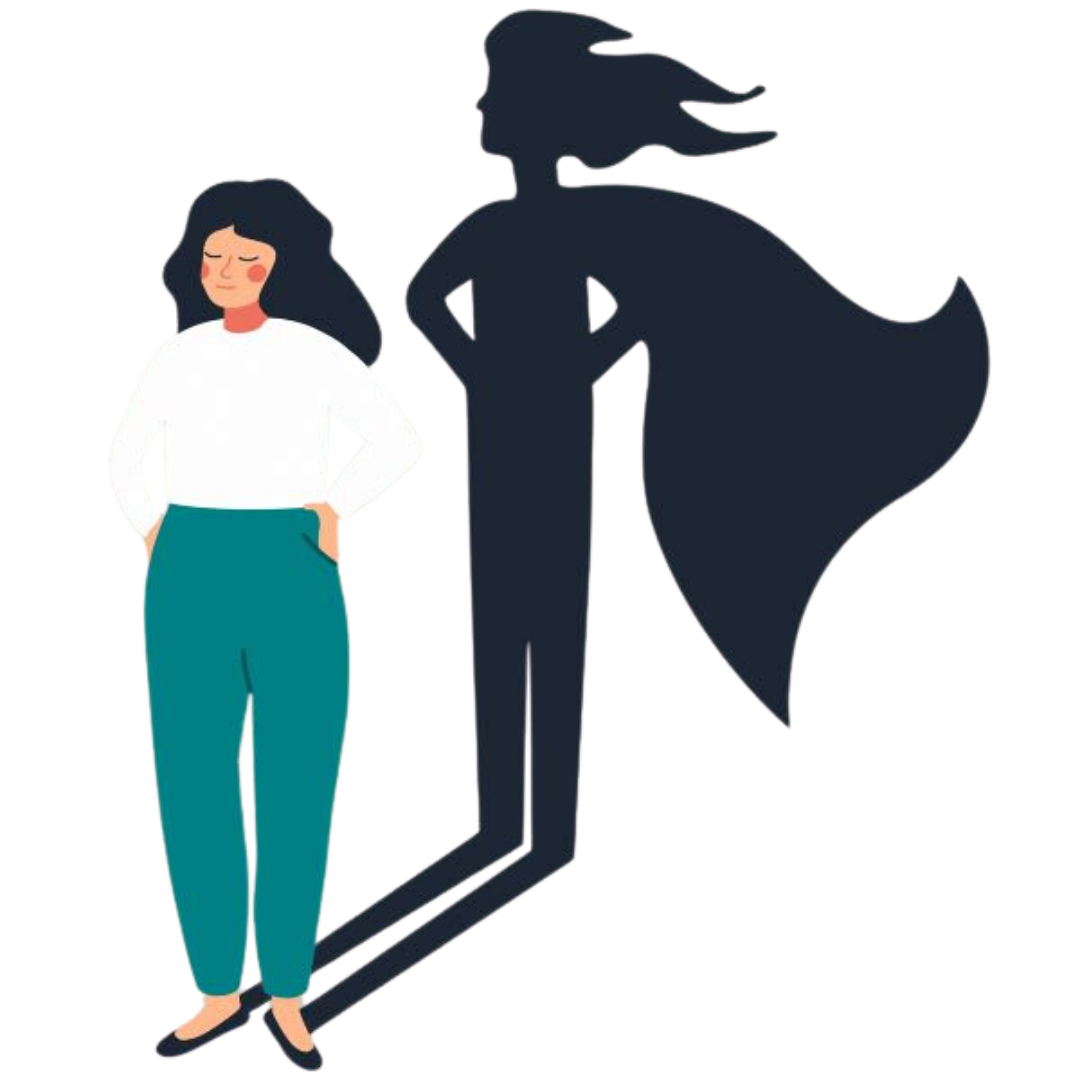

Presents...
Nurturing Trauma Superpowers
Support clients into post-traumatic growth

Overcome trauma patterns

Protect against vicarious trauma & burnout

Develop trauma superpowers
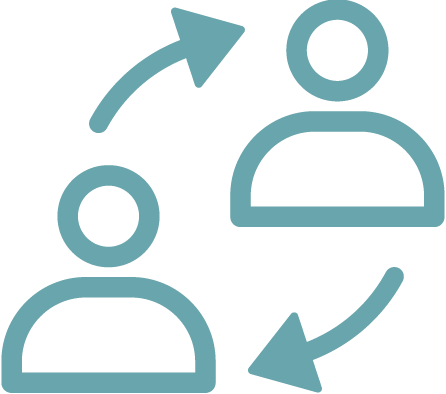
Kinder, more effective coaching
This course is for coaches and facilitators who want to work safely with trauma.
You’ll learn powerful, trauma-informed embodiment tools to protect yourself and support your clients’ growth while doing so.
Trauma is sadly common. By working with it as a coach, you can guide your clients through trauma and into post-traumatic growth, while maintaining your own resilience as a coach.
Nurturing Trauma Superpowers includes:
- 9 live small group calls to support you in working with trauma
- Experiential practices to overcome any negative patterns holding you back
- Inspiration and insights from a range of facilitators who share their journeys working with trauma, giving you a map you can follow too
If you want to develop your own trauma superpowers, help your clients to do the same, and avoid burnout whilst doing so, this course could be a great fit.
This course could be for you if you are a…

Coach or facilitator
who’d like to work safely with trauma

Movement or meditation teacher
who just wants to be better informed

Therapist
looking for a new approach to add to their own
… Who wants to safely and confidently support your clients with post-traumatic growth.
After this course you’ll…
- Learn the “red flags” of who not to work with
- Develop your own trauma superpowers
- Learn to regulate yourself and co-regulate with clients more effectively
- Learn how to turn “trauma-informed” into trauma-enhanced
- Know how to guide people to their “trauma superpowers”
- Have greater empathy and understanding of your clients with varied types of trauma
- Have much better strategies for avoiding vicarious trauma
- Develop your own system for preventing burnout
Put simply, you’ll be a kinder, more effective coach.
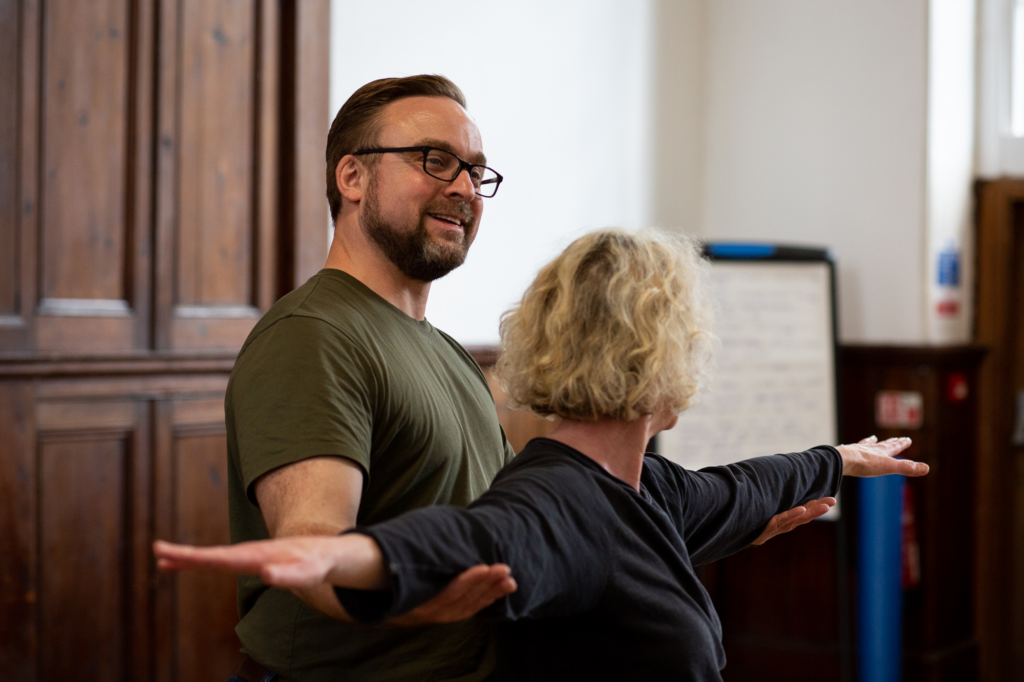
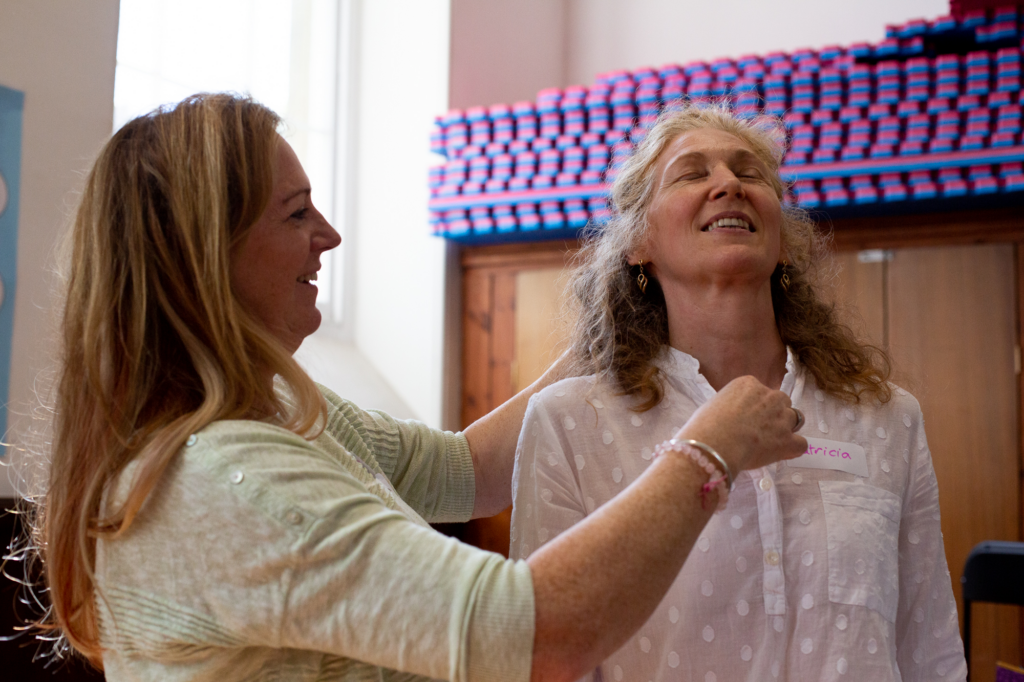
Live schedule
The live small group calls start on Wednesday October 30 and end on Wednesday December 11.
These calls run every Wednesday over this period at 6pm UK time.
There are also two bonus calls at this same time on Thursday November 7 and Thursday November 21.
- October 30: Introduction and clarifying what trauma is
- November 6: How to enhance your coaching with trauma awareness
- November 7: Avoiding vicarious trauma - THURSDAY
- November 13: The trauma superpowers model
- November 20: Identifying your own trauma superpowers
- November 21: Avoiding vicarious trauma - THURSDAY
- November 27: Working with clients (part 1)
- December 4: Working with clients (part 2)
- December 11: Conclusion & closing
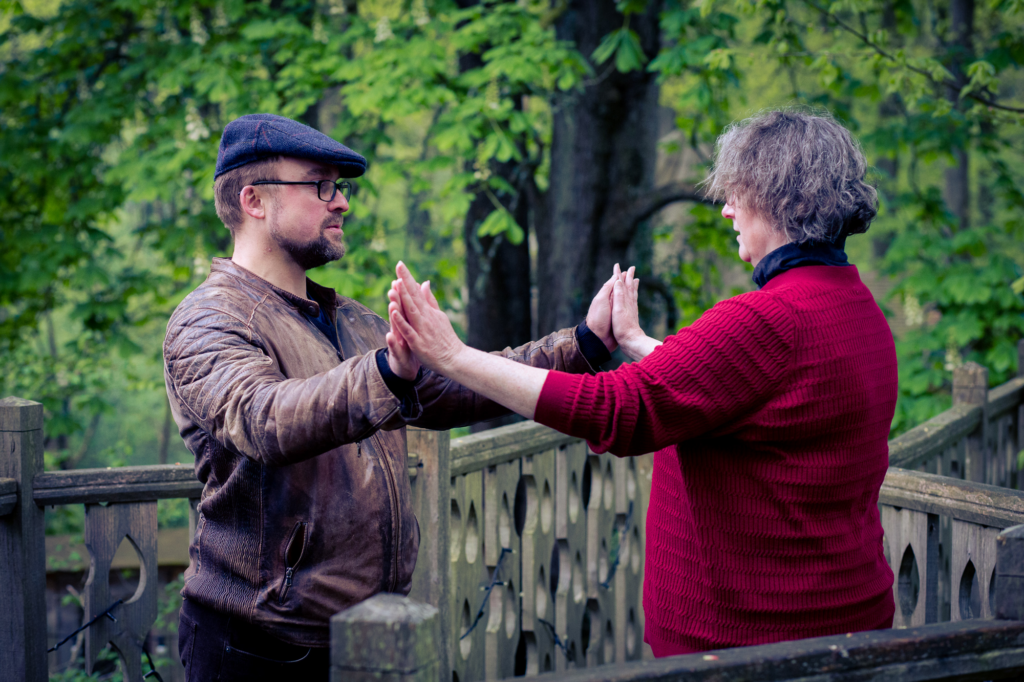
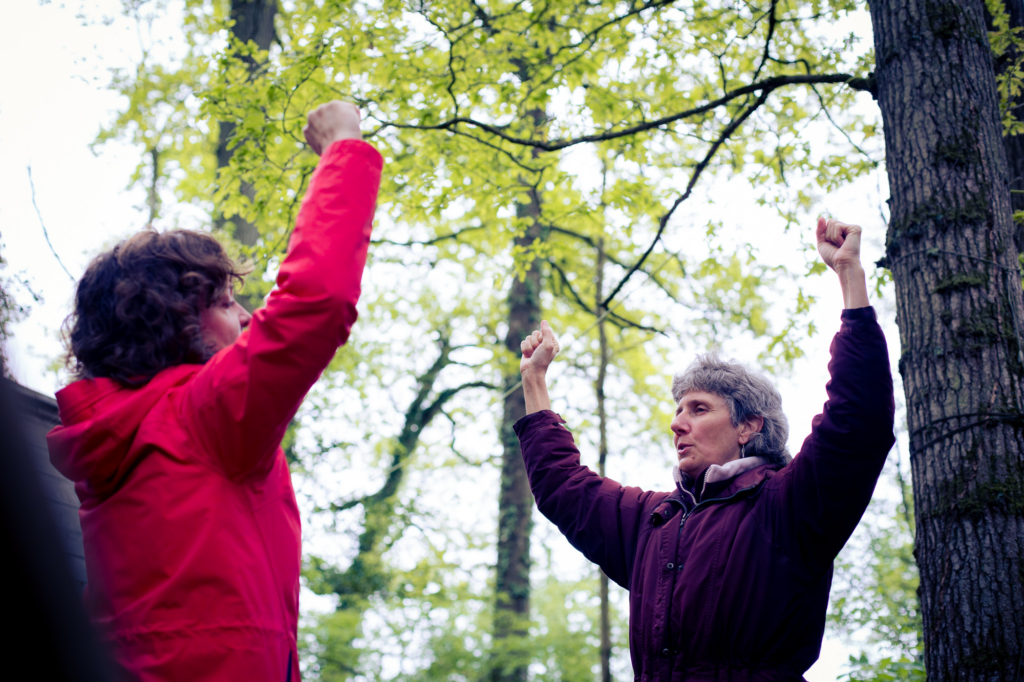
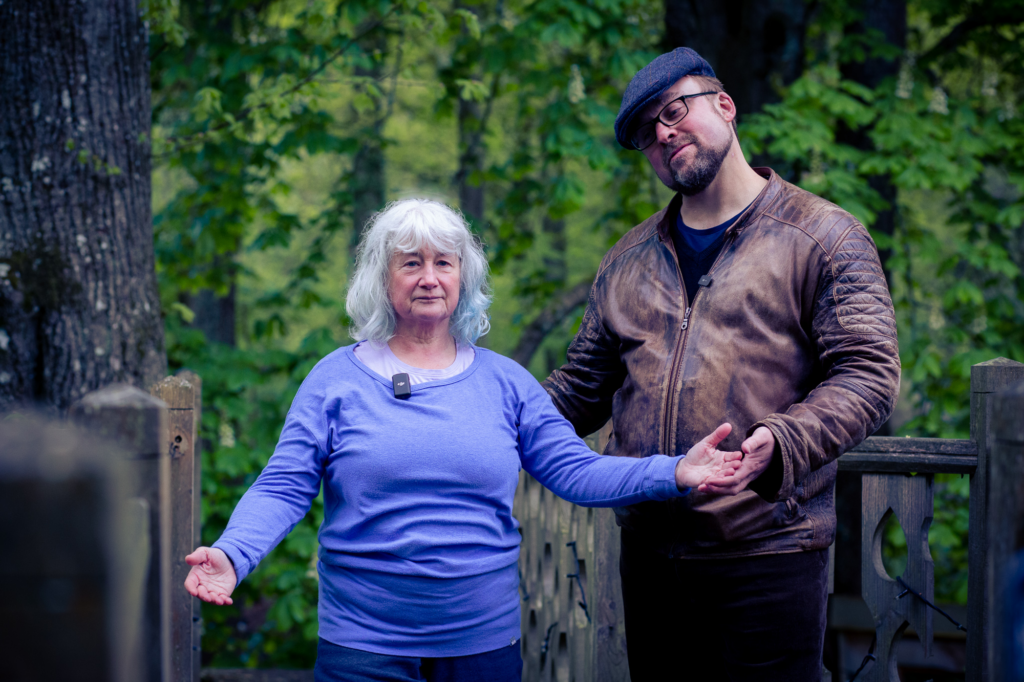
What past students say...
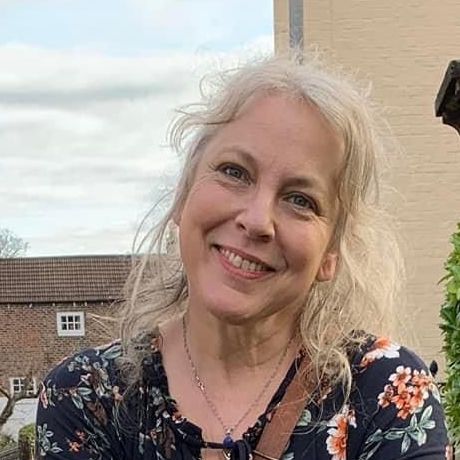
















What's included
Along with the 9 live small group calls, this course also includes 8 hours of prerecorded learning split into two parts:
Moving Beyond Trauma
(3 hours)
Here you’ll learn practical science-based techniques and proven daily practices to help you move beyond trauma.
It includes modules on:
- Reframing trauma
- Working through trauma
- Transforming trauma
Trauma Superpowers
(5 hours)
This includes personal stories from teachers on how they transformed trauma into their unique personal and professional superpowers:
- Warzones to business - Mark Walsh
- Sex worker to trauma educator - Ilan Stephani
- Instability to supporting women - Jane Dancey
- Gang violence to body witch - Melissa Gutierrez
- Childhood trauma to trauma innovator - Paul Linden
- Challenging times to trauma therapist - Patricia Aguirre
Team

Mark Walsh
CEO & Founder, Embodiment Unlimited
Mark Walsh leads embodiment, coaching and trauma education trainings.
He is the author of Embodiment, Working with the Body in Training and Coaching, and Embodied Meditation. Mark hosts The Embodiment Podcast (2 million+ downloads), and led The Embodiment Conference (1000 teachers, 500,000 delegates). Seeing a theme yet?
He founded the Embodied Facilitator Course, and the Certificate of Embodiment Coaching. Mark has certified over 2000 embodiment coaches, and taught workshops in over 40 countries.
He gained an honours degree in psychology (despite been an alcoholic at the time), and has taught widely in the corporate world – where he pretended to be a grown up for years – including with blue-chip companies (e.g. Google, Unilever, Shell, Axa, L’Oreal).
Mark has worked in war zones (including founding a trauma education charity in Ukraine), and entertained over 50,000 children. He has headlined International Coach Federation events, lived with the circus and in slums, taught celebrities, and kissed a princess.
Mark is an aikido black belt, and also has 28 years of experience in other martial arts, yoga, bodywork, improv comedy, conscious dance and meditation.
Embodiment is his obsession, life’s work, and frankly, at this point he couldn’t get a job doing anything else. He dances like your dad at a wedding, impresses cats with his stroking, and offends pirates with his swearing.
Mark’s now tired of writing in the third person. It’s getting weird.
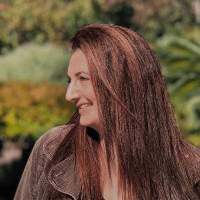
Sara Jones
Psychotherapist, Coach
Self-paced teachers

Ilan Stephani
Trauma & Intimacy Educator
Ilan Stephani is a Berlin-based bestselling author, speaker and researcher on how to shift collective paradigms and un-learn cultural conditioning to gain back our natural orgasmic aliveness.
She walks the talk with endless curiosity, humour and ongoing research in the fields of Embodiment, sexuality, trauma, health and mysticism.
Ilan gained nation-wide attention with her bestselling book Skin and Games – What Sexwork Taught Me About Love.
She offers online courses, in-person retreats and year-long intensives in both German and English.
Ilan shares her radical perspectives and practical insights through her popular global YouTube channel and her podcast YoniOnAir.

Jane Dancey
Feminine Cycles Health Coach
Jane’s a Female Health and Wellbeing Coach, somatic yoga teacher, menopause mentor, embodiment facilitator, creatrix of The Embodied Female Pelvis online course, yoga teacher trainer and mentor.
She’s a mama to one teen girl, a seeker, researcher, explorer and avid sea swimmer.
Jane’s passionate about supporting women through all stages of their lives, from puberty to menopause and beyond, accompanying them towards wholeness, health, vitality and power. Her clientele range from tweens to octogenarians.
Jane’s specialities are female pelvic wellbeing, menstrual cycle awareness, teen yoga for stress and anxiety, functional fitness, sexuality, pleasure and the menopause.
She uses a mix of modalities – somatic movement, functional fitness, yoga, breath work, chair-based yoga, embodiment, visualisation, meditation, relaxation and journaling.
Jane has over 15 years of experience facilitating yoga and embodiment.

Melissa Gutierrez
The Body Witch
Melissa’s a yoga teacher, personal trainer, energy healer, author and scientific-minded body researcher who also believes in the realness of magical practices.
When she’s not teaching classes, workshops or clients, Melissa can be found reading and reading and reading everything she can about the body, mind and spirit.
Melissa’s research – which includes neuroscience, anatomy, physiology, eastern medicine modalities of all kinds, and witchcraft – is what has helped her to create individualised programs to help people even when they didn’t think they could be helped.
All that said, her greatest skill is using her intuition, backed-up by a no bullshit evidence-based approach, to develop strategies to address clients’ individual needs.
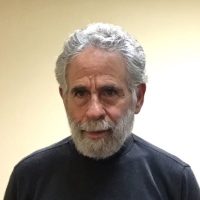
Paul Linden
Trauma Educator, Aikido 6th Dan
Paul Linden, PhD, is a body awareness educator, a martial artist, and an author.
He is the developer of Being In Movement® Mindbody Education, and founder of the Columbus Center for Movement Studies in Columbus, Ohio USA.
Paul holds a BA in Philosophy and a PhD in Physical Education.
He’s been practising and teaching Aikido since 1969 and holds a sixth degree black belt in Aikido as well as a first degree black belt in Karate. Paul is an instructor of the Feldenkrais Method® of somatic education.
He has extensive experience teaching people such as musicians, athletes, business people, computer users, pregnant women, adult survivors of child abuse, and children with attention deficit disorder.
Paul’s work has focused on trauma recovery and peacemaking. He has taught many workshops in places from Germany and England, to Russia and Ireland, to Israel and to Ecuador.
Paul has written numerous papers and books on diverse topics, and has created a number of instructional videos as well.

Patricia Aguirre
Trauma trainer, PTSD specialist
Patricia Aguirre offers psychological coaching processes with a particular focus on women’s needs.
She is a specialist and trainer in trauma work and CPTSD worldwide, and teaches body work, somatics and embodiment.
Patricia holds a masters in family constellations, and has been trained in neurobiology of human behaviour, as well as attachment-based therapies, certified as couples counsellor with attachment-based outlooks, and transpersonal therapy.
She combines all of this education with a foundation of 20 years of experience on a personal spiritual pursuit in eastern philosophies that she now integrates in a grounded expression of spirituality for everyday life application.
What embodiment leaders say...

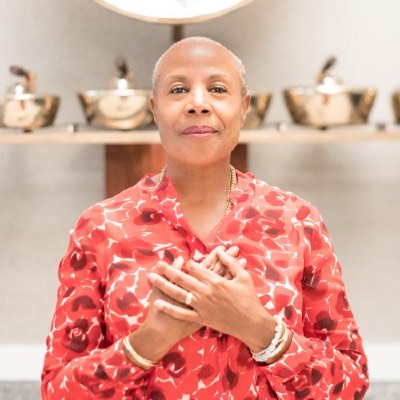

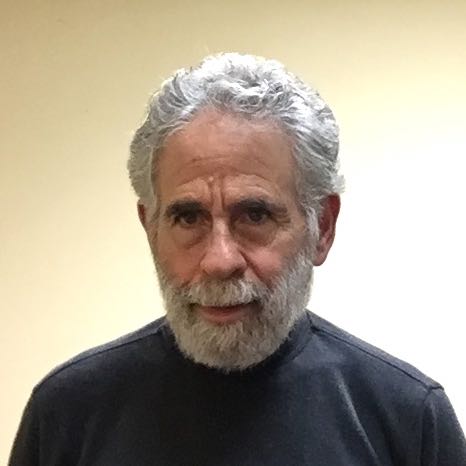



Why this matters now...
“So many of the things I’m good at now come from trauma. I’ve also seen ‘trauma superpowers’ in many many clients.
To be clear, I’m not saying trauma is a good thing. Clearly it isn’t. But over time, and with the right support, people can develop uniquely strong capabilities because of trauma. Trauma motivates us to get very very good at something. In fact, one model of trauma that can be useful, is that it’s a kind of learning.
As a coach I’ve found that when clients are ready (and this is key), they really like the frame of trauma superpowers. It helps them see how far they’ve come, helps them value and develop key skills, and makes meaning out of catastrophic events.
While medical models can be helpful in early stages of healing, other approaches tend to be a better fit later on. I’ve learnt that there is much that I can do as a coach that is not therapy.
Honestly, I think that it’s a bit of profiteering that therapists have scared other professionals off of working with trauma. It is possible with the right tools and training.
On Nurturing Trauma Superpowers, you’ll be introduced to some of these. Now’s as good a time as any to empower coaches to do this powerful work, and more importantly, their clients whose potential can really be unlocked through this framework. You’re very welcome to join.”

Mark Walsh
Frome UK, October 2024

Bonus
(normally $199)
If you join Nurturing Trauma Superpowers before October 23, you’ll get immediate access to our Introduction to Trauma course.
Led by Mark Walsh and Patricia Aguirre, it’ll teach you the fundamentals of trauma if you’re new to it.
You’ll also learn the common symptoms of trauma, the weird ways it shows up, what trauma coaching is and why it’s needed now.

Mark Walsh

Patricia Aguirre
Be a kinder, more effective coach
Last chance to join...
Nurturing Trauma Superpowers
Support clients into post-traumatic growth
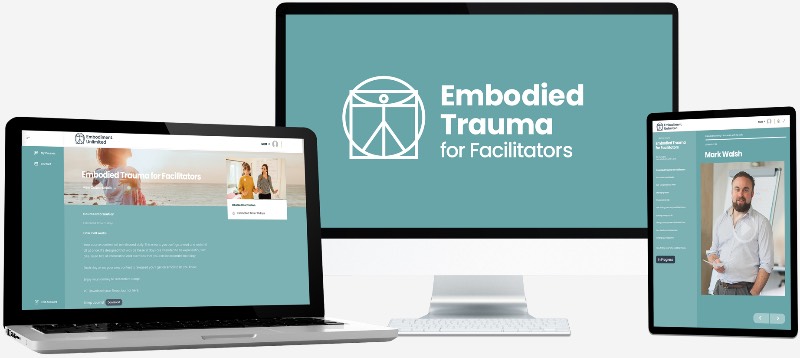
Live online | Oct 30-Dec 11
- Work with trauma kindly & effectively
- Avoid vicarious trauma & burnout
- Develop your own superpowers
- BONUS
- Introduction to Trauma course (normally $199)
Normal price
$1000
Last-minute rate
$599
For the next
who use the code
SUPER599
FAQs
Yes.
However, a big part of the course is on how to work with others.
If you’d like to become a coach or facilitator, CEC may be a good fit. You could study that after this course so you can learn to bring these skills into coaching.
The course runs every Wednesday from October 30 until December 11 at 6pm GMT. Click here to see the schedule>>>
There are also two bonus sessions on Thursdays – these are at 6pm GMT on November 7 and 21.
Yes, all sessions will be recorded and added to the learning platform within 48 hours of the sessions ending.
After signing up you’ll be sent an email with a link to access the course and your bonuses.
We have a sense of humour and like to have fun while we teach. If you’re easily offended, you may not like it. This course is a place for robust adults.
Yes. Although please be mindful that working with the body can be triggering.
This training is purely educational, so if you are in need of therapy, please seek help from qualified professionals.
Got a question not answered above?
Please contact Virginia on support@embodimentunlimited.com…
